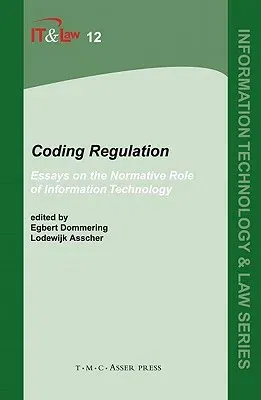The collected essays in this book concern the intriguing matter of the
interaction between law and technology and the normative role of
information technology. More precisely, they focus on the way
information and communication technologies regulate human behaviour. Can
information technology be an alternative to legal regulation and, if so,
what are the risks?
In this book the question is addressed as to how law interacts with
technology in general and whether software ('code') can be understood as
law. Comparisons are made between different technologies of
communication (fixed and mobile telephony and the Internet) from the
angle of control of communications. A problem is that the tool becomes
more and more intransparent: it becomes a means of controlling human
behaviour that replaces instruments of law. The impact of this
development in the domains of freedom of expression, privacy and
property is therefore analysed in depth.
The issues raised in this book were discussed during a conference
entitled Code as Code, held in Amsterdam, The Netherlands. The report
of the debate between leading experts who attended the Conference forms
the round-up in the book, as do the proposals for a future agenda for
research.
Together and individually, the authors provide substantial and
meaningful contributions to the lively debate on the relationship
between 'software code' and 'legal code' as it was initiated by Lawrence
Lessig's book Code and other Laws of Cyberspace (1999). The book is
therefore highly recommended to professionals in IT and law, legal
scholars, government policy makers and - not to forget - students of IT
and law.
Coding Regulation is edited by Egbert J. Dommering, Professor of
Information Law at the University of Amsterdam, and Lodewijk F.
Asscher, researcher at the Institute for Information Law, University
of Amsterdam, and Deputy Mayor for Economic Affairs of the City of
Amsterdam.
This is Volume 12 in the Information Technology and Law (IT&Law)
Series

